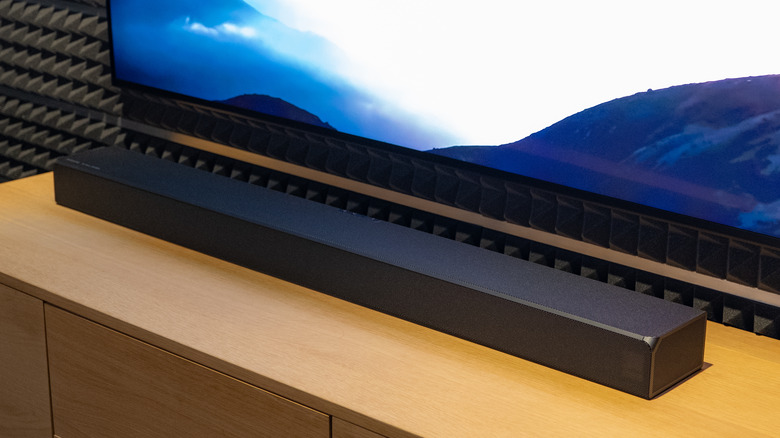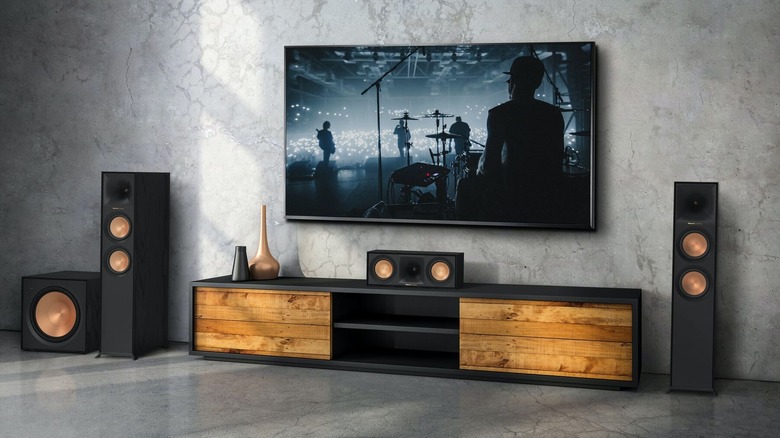Soundbar Vs Speakers : The Pros And Cons Of Each System (And Which You Should Get)
There are plenty of reasons to level up your TV's sound. With screens becoming increasingly thinner, internal speakers are shrinking, diminishing the ability to produce robust sound. Besides their diminutive size, many internal television speakers are located at the bottom, facing downward, or even worse, mounted on the set's rear. A new sound system can significantly enhance a movie-watching, gaming, or music-streaming experience for a modest cost. It can even prolong the life of an older television with failing speakers.
Hands down, a soundbar is the most convenient option. A soundbar is a long rectangular enclosure containing multiple speakers, which makes it very easy to situate. Many users place them directly underneath a television, assuring easy routing for power and signal cables. Generally, soundbars are more affordable than separate external speakers and feature a built-in amplifier for easy installation.
However, the all-in-one nature of a soundbar can also be a negative because of a lack of stereo separation or larger soundstage achieved by distancing the left and right channels. Also, because soundbars tend to be low-profile, the size of the speaker drivers inside them is going to be on the smaller side.
To compensate, some soundbars are paired with a separate subwoofer to enhance the lower bass frequencies small drivers in the soundbar can't reproduce. Of course, a subwoofer module will require additional floor space and separate connections, somewhat negating the simplicity of a soundbar. Lastly, some soundbars may struggle to fill a large room with sound.
Speakers require more space and setup
Although speakers require additional space, expense, and wiring, they'll typically offer superior audio over soundbars due to their larger size and spatial separation. A set of speakers can consist of a stereo pair to a complete home theater setup with five or more speakers to cover the front, rear, and center, plus a subwoofer.
Using unpowered speakers may require purchasing a separate external amplifier or receiver. Self-powered sets typically have a receiver built into one speaker, to which the remaining ones are connected.
The placement of the speakers will necessitate some trial and error. Even minor adjustments toward or away from the listener can result in significant changes in sound. Further, metal or wooden stands may be required to elevate speakers to a suitable listening height, which risks them being knocked over by kids or pets. Depending on your speakers, a larger room or more floor space may need to be dedicated to the endeavor.
So which is better, a soundbar or speakers? Either will be a massive improvement in sound quality over built-in television speakers. If space or cost is a concern, soundbars are a popular choice. If you have suitable space, funds, and don't mind a more complicated setup process, consider a surround sound or audiophile component system. Or split the difference — a simple pair of self-powered stereo speakers isn't much pricier or more challenging to set up than a soundbar.

